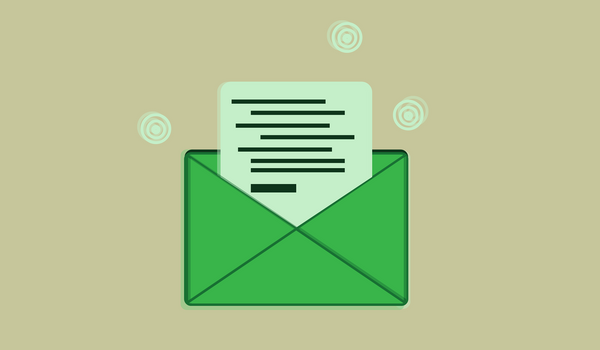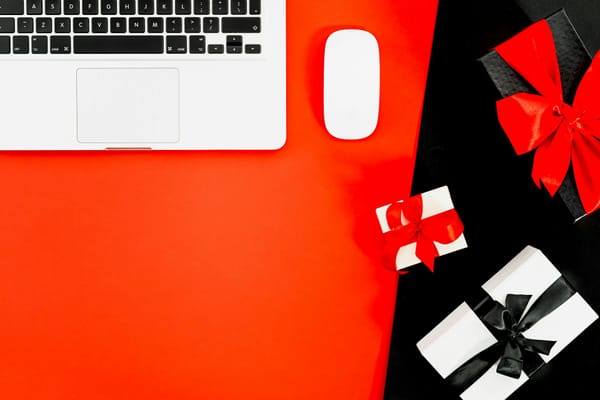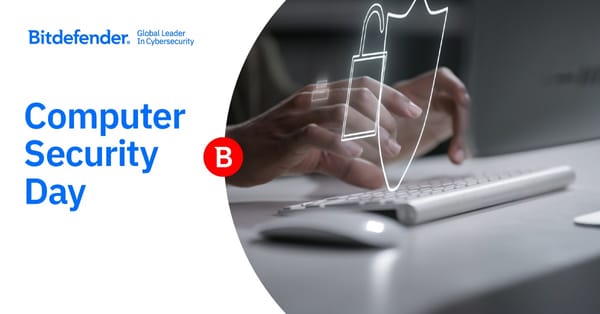Digital Decluttering, Episode 1 – 7 Tips to Master Inbox Zen

Let's talk about decluttering digital spaces to get more mental clarity, well-being, efficiency, and safety.
It feels good to get rid of clutter in your house and give everything a deep clean. But what about your inbox? Is it full of emails you no longer need, using storage space and making it harder to find important information? And how do you feel when you open it?
Cleaning your inbox is like cleaning your desk: you'll feel lighter, your mind will be clearer, and you'll breathe better. By getting rid of the old, you'll create space for the new.
How are you doing in the email world?
We all receive an overwhelming amount of emails every day, and the more we get, the more it can affect our work and mental state. Being inundated with emails can leave us feeling exhausted, burnt out, under pressure, and out of control.
A recent survey found that 39% of people check their email 3-5 times a day, 27% do so 10-20 times daily, a striking 22% check more than 20 times daily, and 58% make it their first task in the morning. (source: Mailbutler).
If you're feeling stressed or overwhelmed every time you see your inbox, it's time to take action and find ways to manage your emails more effectively.
Delete, delete, delete
Take a moment to review your inbox. Which emails and folders do you still need? Which ones have served their purpose and can now be deleted? The more emails you keep, the more space they take up, and often, many of them are not even that important.
The quickest way to tidy up your inbox is to:
1. Use inbox search filters to sort emails quickly
2. Save important addresses and attachments
3. Put emails you want to keep in folders
3. Delete the rest
Whenever you feel like keeping an email "just in case," think of the Inbox Zero goal.
The concept of Inbox Zero was introduced by productivity expert Merlin Mann, who gave a Google Tech Talk on the topic in 2007. The idea is simple: have an inbox with zero emails inside. To achieve this, every email needs to be deleted unless it is an ongoing exchange or includes important information.
7 tips for keeping your inbox tidy
Here are some tips to keep your inbox organized and prevent it from getting cluttered.
1. Delete old emails every week
To keep your inbox free from clutter, it's best to deal with your emails as they come and not let them pile up. Following Merlin Mann's strategy, you have five options to deal with a new email: delete, delegate, respond, defer, and do. Processing emails on the go will help you keep your inbox clean and tidy.
2. Use of email rules and labels
Many email services provide features to help you organize your inbox efficiently. You can make use of email rules and labels to automate this process.
For instance, you can:
- set emails to go straight into specific folders – work, family, clients, etc.
- flag automatically emails from key clients
- schedule your inbox to automatically delete emails after a specific date
- put any non-important emails into another folder to sort through when you have more time.
Did you know?
Sending 65 emails has the same environmental impact as driving 1km in a car. The average person in the developed world adds approximately 136kg of CO2 to their carbon footprint each year just from sending and receiving emails, which is equivalent to driving an extra 320km in a car. Globally, the world's email usage generates as much CO2 as having an extra seven million cars on the roads. (source: sciencefocus.com)
3. Use the out-of-office feature even when you are not on holiday
We all need a break, even from emails. Use the out-of-office feature whenever you won't be able to respond to emails for a while, not just when you are on holiday. Enable it when you have a day full of meetings, a deadline that requires your full attention, some personal time, or when your work day is over.
Turning this feature on/off as you need will serve as a reminder that you are in control of your inbox, not the other way around.
4. Set up different email addresses for work and personal
While it may be tempting to use one email address for everything, this can lead to confusion and inefficiency. For instance, it can be difficult to keep track of emails from clients if they mix with those from friends or your yoga teacher. By separating your life into multiple email accounts, you can keep everything organized and reduce stress.
5. Turn long email threads into short conversations
This may not always be possible when you work in a company, but consider taking the initiative in other cases: a family member's birthday, an event at your sports club, or your children/grandchildren's school.
Long email chains with people replying only with "ok" or "hi" and interrupting you every 5 minutes can be pretty frustrating.
Moreover, the longer the chain, the more chaotic your inbox gets. Therefore, it's better to transform these email chains into instant messages or phone calls to make communication more efficient.
6. Unsubscribe from newsletters you don't read
If you have subscribed to a newsletter that you no longer find interesting or useful, it's better to unsubscribe from it. There's no point in cluttering your inbox with unnecessary communications. On the other hand, if you like reading some newsletters but don't have the time to go through them regularly, create a separate folder for newsletters and make sure to empty it from time to time.
7. Block spam and scams
Phishing emails are not only a waste of your time but can also be dangerous, carrying malware or tricking you into revealing your personal information. According to Statista, almost half of all emails sent globally in 2023 (347 billion emails in 2023 alone) are categorized as spam, with the majority coming from the United States, China, and Russia.
Although email filters can help reduce the number of unwanted emails, they are not always effective against well-crafted phishing emails that can deceive the filters and still end up in your inbox.
To keep your inbox clean and safe, you can use Bitdefender Email Protection, available for Gmail and Outlook. This service automatically scans incoming emails and labels them as "safe/unsafe" so you know what to do next.
When you are unsure about the authenticity of a particular email, use Bitdefender Scamio. All you need to do is copy and paste the message into the Scamio chat box, and it will analyze the email and notify you whether it is a scam or not.
With Scamio, you can also verify images, links, QR codes, or situations, such as online romance or investment opportunities. This way, you can protect yourself from potential scams and keep your personal information safe.
As you begin your journey to manage your inbox, keep in mind that every email you delete is a step closer to a clearer and more relaxed mind. Stay tuned for upcoming episodes where we'll discuss how to declutter your social media accounts, bid farewell to old online accounts, and tidy up digital devices.
Let's continue this digital decluttering adventure together and bring joy and safety to our online lives!
tags
Author
Cristina is a freelance writer and a mother of two living in Denmark. Her 15 years experience in communication includes developing content for tv, online, mobile apps, and a chatbot.
View all postsRight now Top posts
How to Protect Your WhatsApp from Hackers and Scammers – 8 Key Settings and Best Practices
April 03, 2025
Outpacing Cyberthreats: Bitdefender Together with Scuderia Ferrari HP in 2025
March 12, 2025
Streamjacking Scams On YouTube Leverage CS2 Pro Player Championships to Defraud Gamers
February 20, 2025
How to Identify and Protect Yourself from Gaming Laptop Scams
February 11, 2025
FOLLOW US ON SOCIAL MEDIA
You might also like
Bookmarks







